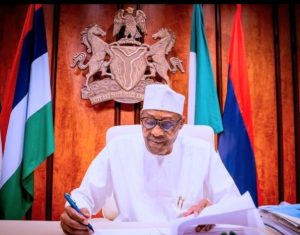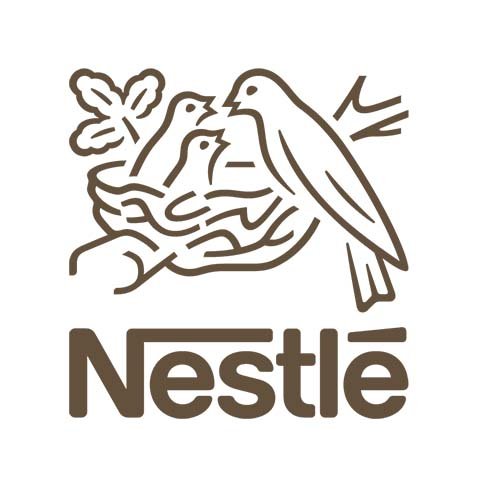INVESTIGATION: N2.84 trn spent on subsidy in 17 months doubles the N1.45 trn allocated for infrastructure in 2022 budget. It is over N700 bn higher than N2.1tr total budget for health and education. Here is Platforms Africa exclusive report on fuel subsidy and an economy in reverse gear
The Nigerian government has dwarfed the budget for three critical sectors of the economy – Education, Health and infrastructure – in 2022 fiscal year with the N2.84 trillion already spent on petrol subsidy in the last 17 months, investigation by Platforms Africa reveals.
Latest data on subsidy obtained by this reputable media group from the Nigerian National Petroleum Corporation, NNPC Limited, showed that petrol subsidy grew by 190.62 percent in the first five months of 2022 to hit N1.274 trillion compared to N438.36 billion recorded over corresponding period last year.
With the latest figure, the total amount paid for petrol subsidy in the past 17 months (N1.5 trillion in 2021) has risen to N2.84 trillion.
READ ALSO EXCLUSIVE: Buhari Removes Ag Accountant-General 28 Days After Appointment
EXCLUSIVE: Buhari Declines Ministerial Consent For ExxonMobil $1.6bn Assets’ Sale To Seplat
Oil Theft: Fact And Figures Of A National Emergency, By Adeola Yusuf
Fuel shortage, inflation’ll weaken Nigeria’s economic growth – World Bank
Data compiled by Platforms Africa showed that the N2.84 trillion spent on subsidy in 17 months is over N700 billion higher than N2.11 trillion cumulative allocation for health and education in 2022 budget. It also doubled the N1.45 trillion allocated for infrastructure in the fiscal year.
Non-critical spending for critical sectors
The Nigerian Government, it would be recalled, allocated the sum of N3.8 trillion to the three critical sectors of the economy including, health, education and infrastructure.
According to the Minister of Finance, Budget and National Planning, Zainab Ahmed in her briefing on October 8, 2021, the Government prioritised infrastructure sector in the 2022 budget by allocating N1.45tn to the sector, which represent N8.9 per cent of the total budget.

The N1.45tn allocated for infrastructure includes provisions for Works and Housing, Power (inclusive of Power Sector Recovery Programme provisions), Transport, Water Resources and Aviation.
READ ALSO BREAKING: Buhari Hikes Fuel Freight Rate, Worsens Subsidy Burden
Strike: Buhari Has Stopped Our Salary, ASUU Members Cry Out
ASUP Confirms Platforms Africa’s Exclusive, Shuts Poly For 2 Weeks
The minister stated that the sum of N820.2bn was allocated to the health sector.
The education sector was allocated N1.29tn; this is 7.9 per cent of the total budget.
This also includes N875.93bn provided for the Federal Ministry of Education and its agencies for their recurrent and capital expenditure, N108.10bn provided for Universal Basic Education Commission as well as N306.00bn for transfers to the Tertiary Education Trust Fund
Breakdown of Subsidy Spending
Latest data on subsidy by the Nigerian National Petroleum Corporation, NNPC Limited, showed that subsidy in May 2022 rose by 99.2 percent to N227.72 billion compared to N114.34 billion recorded in May 2021.
READ ALSO Marry, Divorce or Die, You Have Fingers To Lose; Damn Tale of Dani Tribe
No Fat, No Prize: Bodi Tribe Where Only Fattest Men Are Heroes
Cassowary: ‘Miracles’ Of The World’s Deadliest Bird
Inside Fat Farms Where Young Mauritanian Women are Force-Fed to Gain Weight
Burj Khalifa: On Top of World’s Tallest Building
Also the N503.31 billion incurred in April 2022 was 398 percent higher than N126.29 billion recorded over a similar period in 2021. In March 2022 subsidy of N152 billion was also 35.7 percent higher than N111.96 billion recorded in March 2021.
Petrol subsidy for February 2022 grew by 318.8 percent to N253 billion when compared to N60.4 billion recorded in February 2021. While the figure for January 2022 was N143.72 billion, 466 percent hike from N25.37 billion recorded in January 2021.
The Nigerian Government had earlier in the year 2021 received approval from the National Assembly to spend N4 trillion on petrol subsidy in 2022.
NNPC, which carries petrol subsidy as value shortfall in its books, reported to the Federation Account Allocation Committee meeting for the month of June 2022 that “The Value Shortfall on the importation of PMS recovered from May 2022 proceeds is N327,065,907,048.06 while the outstanding balance carried forward is N617 billion”‘ NNPC said.

The estimated Value Shortfall of N845,152863,012.97bn (consisting of arrears of N617bn plus estimated May 2022 Value Short Fall of N227,721,200,478.23) is to be recovered from June 2022 proceed due for sharing at the July 2022 FAAC Meeting”.
Expert view on Subsidy and NNPC zero remittance to FAAC
Speaking on the growing subsidy payment for petrol, the Director, Centre for Petroleum, Energy Economics and Law, Prof. Adeola Adenikinju explained that the payment for subsidy was responsible for NNPC zero remittance to FAAC.
Prof. Adenikinju noted that despite the high price of crude oil Nigeria was not making money.
According to him, “It is why we are not benefiting now because on the one hand the price of crude is going up but we have to spend that money to import petroleum products which we now sell at reduced price.
“It is rich countries that can afford subsidies, we are poor and that is the reality. We don’t have money that can allow us this way of life, the luxury that subsidy is. We are not subsidizing diesel that is crucial to electricity. Many firms are running their generators with diesel, Commercial goods are moved by roads using diesel.
“Diesel is very expensive but we are not subsidizing it. Also kerosene is also expensive to low income households and yet we are not subsidizing it but petrol which is consumed by the middle class is what we are subsidizing”, he added.
An Economy In Reverse Gear
The World Bank has said that fuel shortage and rising inflation will likely restrain economic growth in Nigeria.
It said this in the June 2022 edition of its Global Economic Prospects report.
The financial institution had projected that Nigeria’s economy would grow by 3.4 per cent in 2022 but decline to 3.2 per cent in 2023 and 2024.
For the first quarter of 2022, the National Bureau of Statistics reported a 3.11 per cent growth, which is still less than the World Bank’s growth projection for Nigeria.
The lender said the growth in Nigeria’s economy would be driven by elevated oil prices, recovery in agriculture and manufacturing, and structural reforms (for example, the Petroleum Industry Act of 2021).
However, it noted that there would be persistent production challenges in the oil sector, which are expected to weigh on growth.
The World Bank also said, “The recovery in non-oil sectors is envisioned to continue, although shortages of fuel and higher food prices would restrain growth.”
The bank also stressed that recurring fuel shortages and power blackouts would weigh heavily on growth.
The report read in part, “Four in ten Nigerians live below the poverty line, with many more at risk of falling into poverty and becoming food insecure. Increases in food prices would further erode domestic demand.”
The bank further warned that high and persistent inflation was weighing on consumer purchasing power, especially of poor and vulnerable households.





